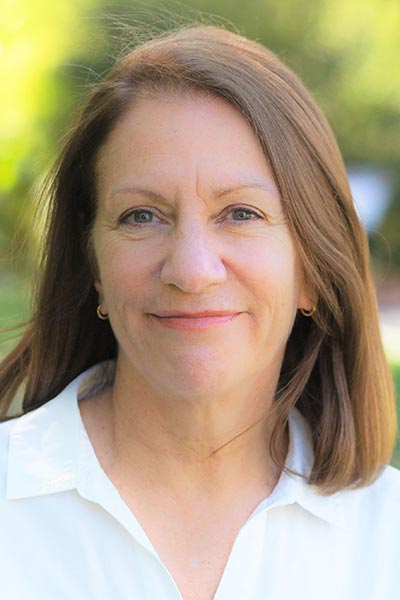The unique programming and broad cross-section of healthcare professionals in attendance differentiate ACR Convergence from other rheumatology meetings. Engaging with colleagues across the interprofessional team working on behalf of people living with rheumatic diseases is one of the primary draws for attendees. That has been true for Association of Rheumatology Professionals (ARP) President Aileen Ledingham, PT, MS, PhD, since she first started attending the annual meeting of the ACR and ARP more than a decade ago.

“Attendees should expect to gain a renewed enthusiasm for fostering networking,” Dr. Ledingham said. “We are convinced that it’s an important piece to the educational element of the profession that you have conversations with people who are like you and, even more especially, who are not like you, who are from different aspects of rheumatology.”
As the president of the ARP, Dr. Ledingham highlighted for ACR Convergence Today sessions and activities at ACR Convergence 2024, which will take place Nov. 14–19 at the Walter E. Washington Convention Center in Washington, D.C., that will be of particular interest to members of the interprofessional team.
Networking opportunities are a top priority for many attendees, she said.
“We have such a diverse background of people within our division of the organization that I will be able to talk to social workers, nurse practitioners, physician assistants, pharmacists, researchers,” Dr. Ledingham said. “It’s endless the amount of people that you can bump into, and all these people play a critical role in the success of our care for people who have rheumatology conditions.”
Networking Lounges, including a dedicated Interprofessional Networking Lounge, will be available during ACR Convergence to facilitate informal discussion around common interests. The lounges will be open from 8 a.m.–6 p.m. daily Nov. 16–18.
“You have the freedom of coming and going into the Networking Lounge,” Dr. Ledingham said. “You’re welcome to sit there. It’s your space.”
On Nov. 16, the Interprofessional Networking Lounge will hold an event to help ARP attendees learn the best way to navigate the conference center and locate the ARP programming. Dr. Ledingham encourages anyone who is new to the meeting—or wanting to start networking early—to take advantage of this guidance. Other events in the Interprofessional Networking Lounge include:
Saturday, Nov. 16
- 8–8:45 a.m. — ARP Orientation
- 10:30–11:30 a.m. — Researcher Meet & Greet
- 3–3:30 p.m. — Meet ARP Leaders & Get Involved
Monday, Nov. 18
- 8–9 a.m. — Meet the Editors
- 11 a.m.–12:15 p.m. — ARP Networking by Discipline
- 4–5 p.m. — Meet the ARP AMPC: Share Your Ideas for Next Year
Also on Nov. 16, in the ARP Keynote: Fostering Empathy, Fostering Health – Interprofessional Advocacy and Collaboration for Patient and Family-Centered Care, Sandra Mintz, RN, MSN, will discuss the vital role of interprofessional collaboration in providing holistic and empathetic care to patients with rheumatic conditions. The session will begin at 1 p.m.
The Poster Hall mixes education with networking. It will be open from 8:30 a.m.–4 p.m. each day Nov. 16–18. Poster Tours will be offered from 9–11 a.m. the same days.
The ARP Business Meeting & Networking Lunch is on Sunday, Nov. 17, from 11 a.m.–1 p.m. Dr. Ledingham noted that last year a lesson was learned; this year the room will be larger and more box lunches will be available to better meet the needs for this popular event. The Business Meeting will provide an update on the actions taken by the ARP Executive Committee in the past year and introduce incoming officers.
In the ARP Distinguished Lecture on Nov. 17, Jamie Collins, PhD, will outline how emerging technology is transforming healthcare by improving diagnosis accuracy, personalizing treatment approaches, enhancing patient outcomes, and increasing operational efficiency across healthcare systems. AI in Rheumatology Practice – Unpacking the Toolkit will begin at 2:15 p.m.
The third ARP special lecture for ACR Convergence 2024 is the Daltroy Lecture on Nov. 18, 1–2 p.m., given by Afton Hassett, PhD. This lecture honors Dr. Lawren Daltroy and emphasizes communication and relationships between patients and health providers. Dr. Hassett will discuss the relationship between the psychological impact of rheumatic diseases and their profound effects on individuals’ physical symptoms and overall well-being.
Dr. Ledingham also expects the following sessions to be of particular interest to ARP members.
- Innovative Clinical Trials: Precision, Design, and Optimization, 9–10 a.m. Nov. 16
- It’s Not Just Joint Pain: Demystifying Difficult, Often Neglected Symptoms of Rheumatic Diseases, 9–10:30 a.m. Nov. 16
- Reflections on Past, Present, and Future Opportunities for Rheumatology Professionals, 9–10 a.m. Nov. 17
- Performance Matters: Using Performance Measures for Hip and Knee Osteoarthritis in Research and Clinical Care, 10–11:30 a.m. Nov. 17
- Weighing In: A Debate on Medical vs. Behavioral Lifestyle Interventions for People with Obesity and Osteoarthritis, 1–2 p.m. Nov. 17
- Chasing Zzzs in Rheumatic Disease: Sleep Disorders and Their Impact, 9–10 a.m. Nov. 18
- Bringing OT Back into the Rheum: Approaches to Utilizing Occupational Therapy in Rheumatology Care, 10:30–11:30 a.m. Nov. 18
- Navigating the Field of Osteoarthritis: American and European Interprofessional Approaches, 8:15–9:15 a.m. Nov. 19
- Leveraging the Patient Voice to Improve Clinical Care and Rheumatology Research, 11 a.m.–12:30 p.m. Nov. 19
For more details on the scientific sessions and other activities at ACR Convergence 2024, view the Online Program or the Schedule at a Glance.

Registered ACR Convergence 2024 Participants:
Watch the Replay
Select ACR Convergence 2024 scientific sessions are available to registered participants for on-demand viewing through October 10, 2025. Log in to the meeting website to continue your ACR Convergence experience.
